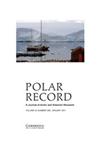北冰洋中部渔业暂停:渔业管理中预防原则的一个罕见例子
IF 1.6
4区 环境科学与生态学
Q3 ECOLOGY
引用次数: 0
摘要
摘要2021年6月25日,一项历史性的渔业协定生效:《防止中北冰洋公海无管制渔业协定》。九个国家和欧洲联盟同意不在CAO进行任何商业捕鱼,并共同开展科学努力,了解生态系统动态,包括鱼类种群。这是第一个在捕鱼开始之前采取具有法律约束力的预防性方法来保护一个地区不受商业捕鱼影响的多边协定。《协定》是预防原则的一个典型例子,因为它致力于“在不确定性面前采取预防行动”。然而,尽管预防原则在自然资源学者中很受欢迎,但各国很少放弃经济利益,在管理资源时采用这种方法。那么,是什么使这项协议成为可能呢?我们可以从这项协议中学到什么,为应对其他资源管理挑战提供指导?本文探讨了使该协议成为可能的独特条件,并考察了科学、政策、法律结构、政治、利益相关者合作和外交之间的相互关系是如何取得成功的。总之,本文得出的结论是,一系列因素使该协议成为可能,包括但不限于:科学突破加上基于科学的法律框架;行业、环保非营利组织和政府之间积极的伙伴关系;国际利益攸关方愿意从以前的错误中吸取教训;以及一个愿意在自己的专属经济区内率先实现未来经济利润的国家,以造福其水域以外的生态系统。本文章由计算机程序翻译,如有差异,请以英文原文为准。
The Central Arctic Ocean fisheries moratorium: A rare example of the precautionary principle in fisheries management
Abstract On 25 June 2021, a historic fisheries Agreement entered into force: The Agreement to Prevent Unregulated High Seas Fisheries in the Central Arctic Ocean (CAO). Nine countries and the European Union agreed to refrain from any commercial fishing in the CAO and to jointly undertake a scientific effort to understand ecosystem dynamics, including fish populations. This was the first multilateral Agreement to take a legally binding, precautionary approach to protect an area from commercial fishing before fishing had begun. The Agreement is a textbook example of the precautionary principle as it works to take “preventive action in the face of uncertainty.” However, despite the precautionary principle’s popularity with natural resource academics, it is rare for countries to forego economic benefits and to adopt this approach in managing resources. So, what made this Agreement possible? And what can we learn from this Agreement that could provide guidance on other resource management challenges? This paper explores the unique conditions that made this Agreement possible and examines how success was achieved by the interrelationships of science, policy, legal structures, politics, stakeholder collaboration, and diplomacy. In summary, this paper concludes that a series of factors helped make this Agreement possible, including but not limited to: scientific breakthroughs coupled with science-based legal frameworks; proactive partnerships between industry, environmental non-profits, and government; willingness of international stakeholders to learn from prior mistakes; and a nation willing to be the first-mover in foregoing future economic profits within their own Exclusive Economic Zone to order to benefit ecosystems beyond their waters.
求助全文
通过发布文献求助,成功后即可免费获取论文全文。
去求助
来源期刊

Polar Record
环境科学-环境科学
CiteScore
1.40
自引率
25.00%
发文量
26
审稿时长
>36 weeks
期刊介绍:
Polar Record is an international, peer-reviewed scholarly periodical publishing results from a wide range of polar research areas. The journal covers original primary research papers in the humanities, social sciences, physical sciences, life sciences, and polar technology, as well as papers concerning current political, economic, legal, and environmental issues in the Arctic or Antarctic. Polar Record endeavours to provide rapid publication, normally within nine months of initial submission.
 求助内容:
求助内容: 应助结果提醒方式:
应助结果提醒方式:


